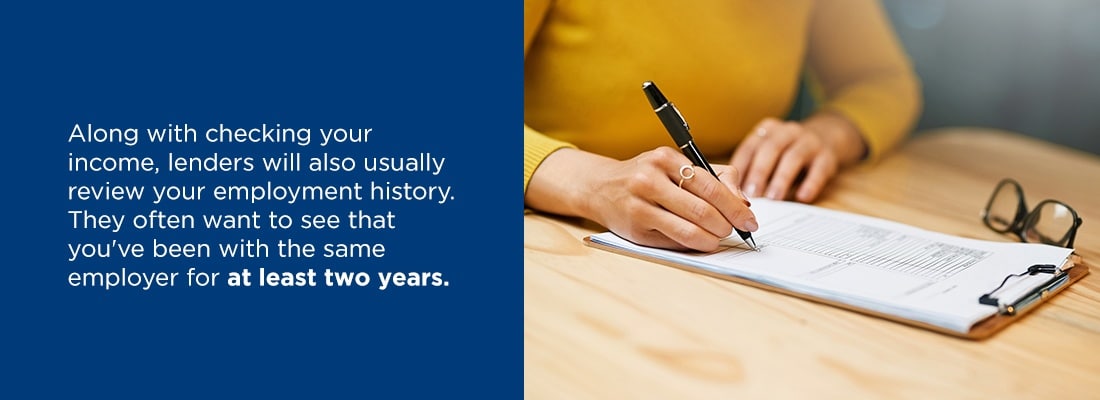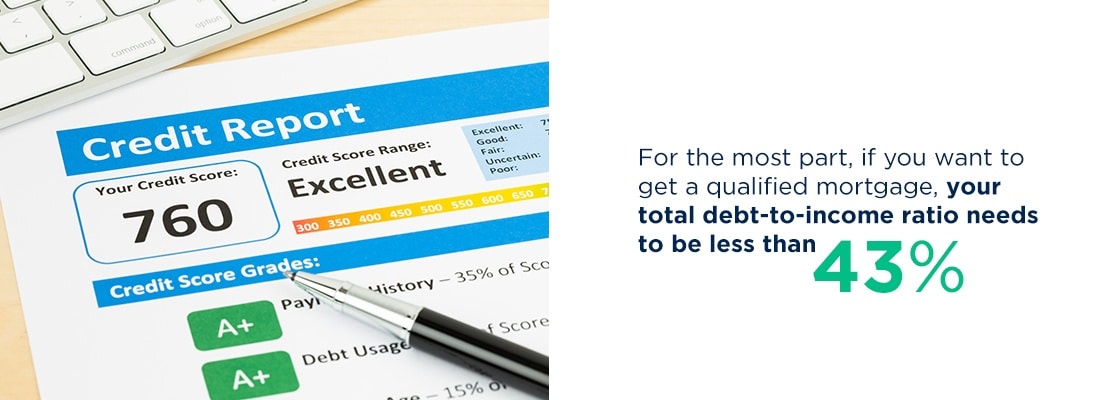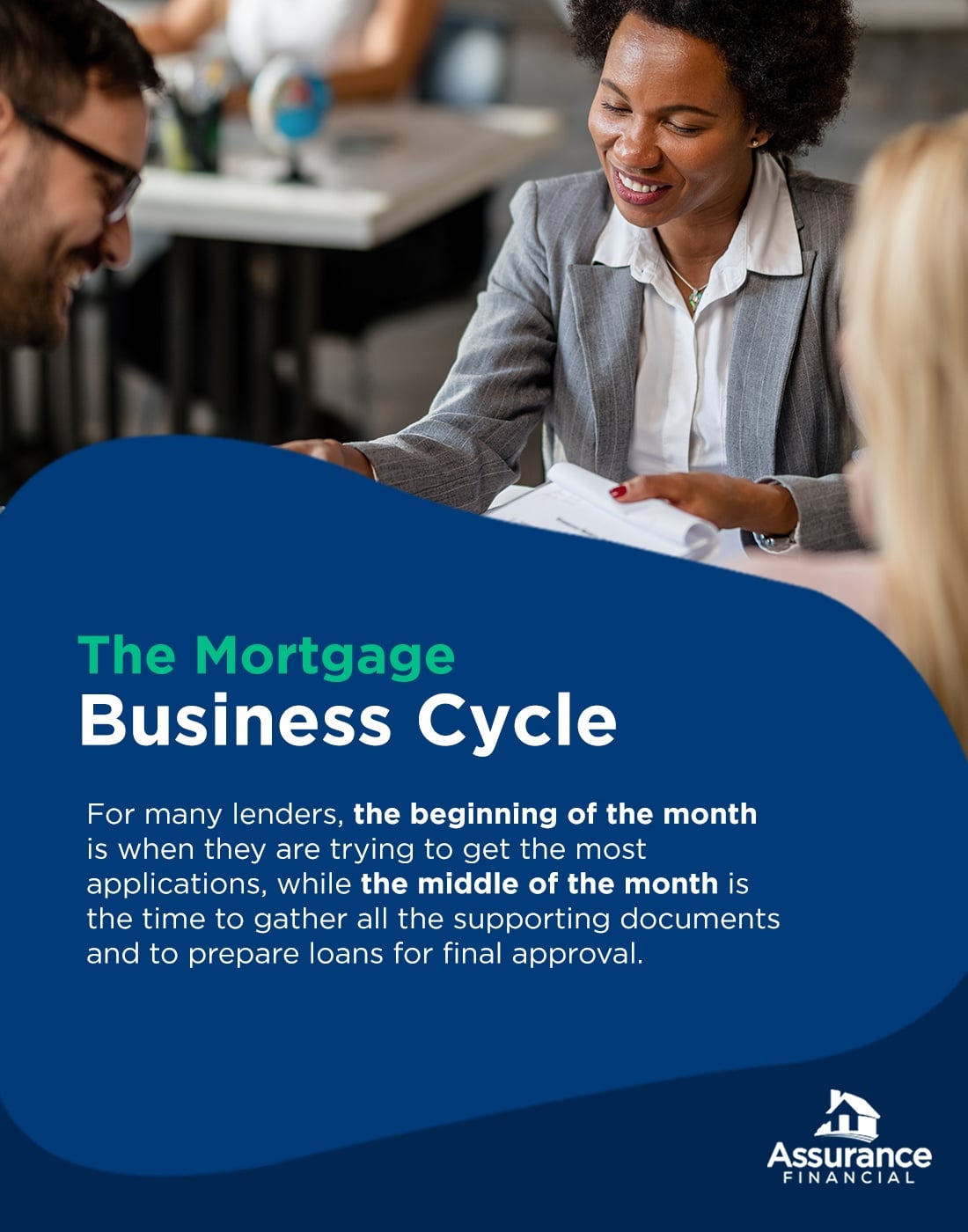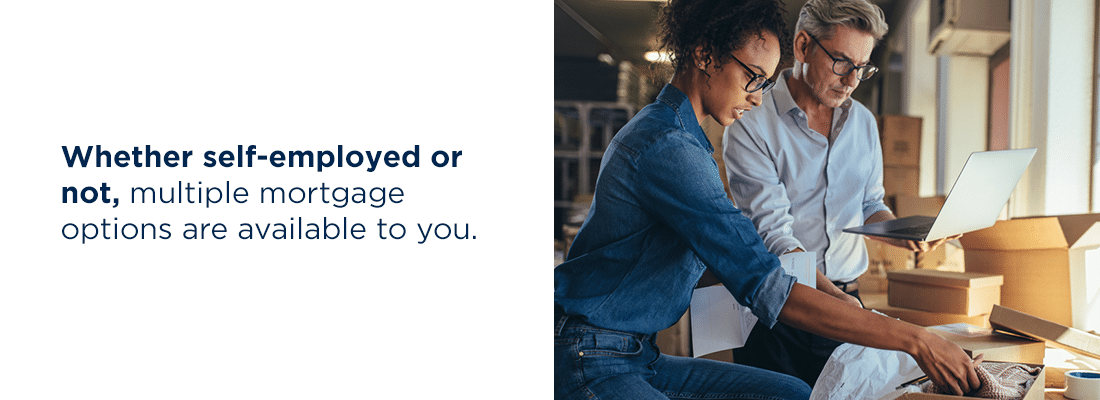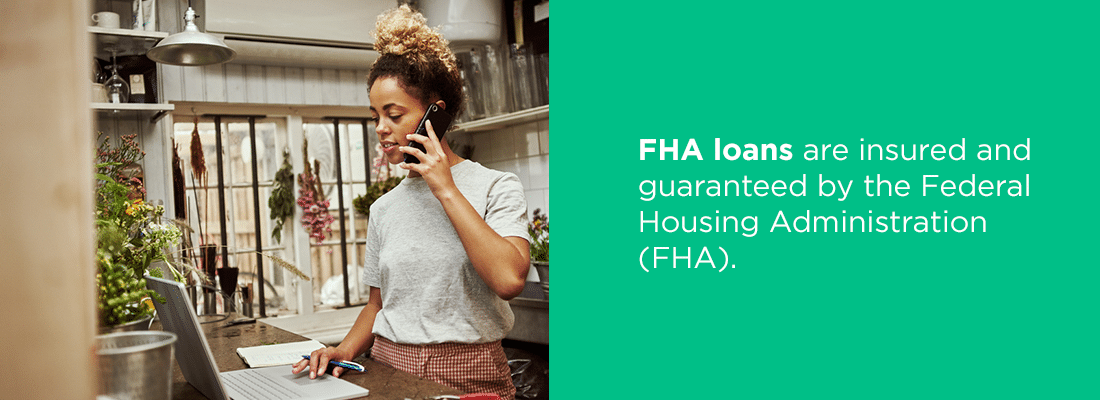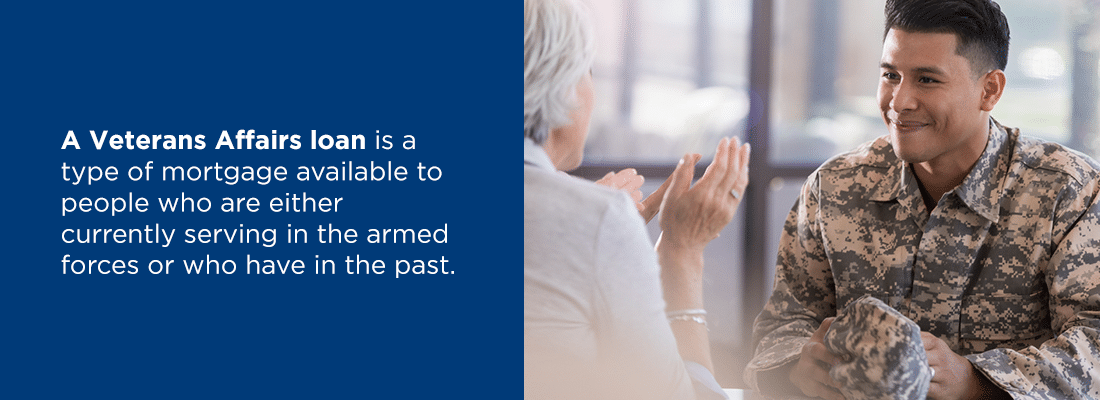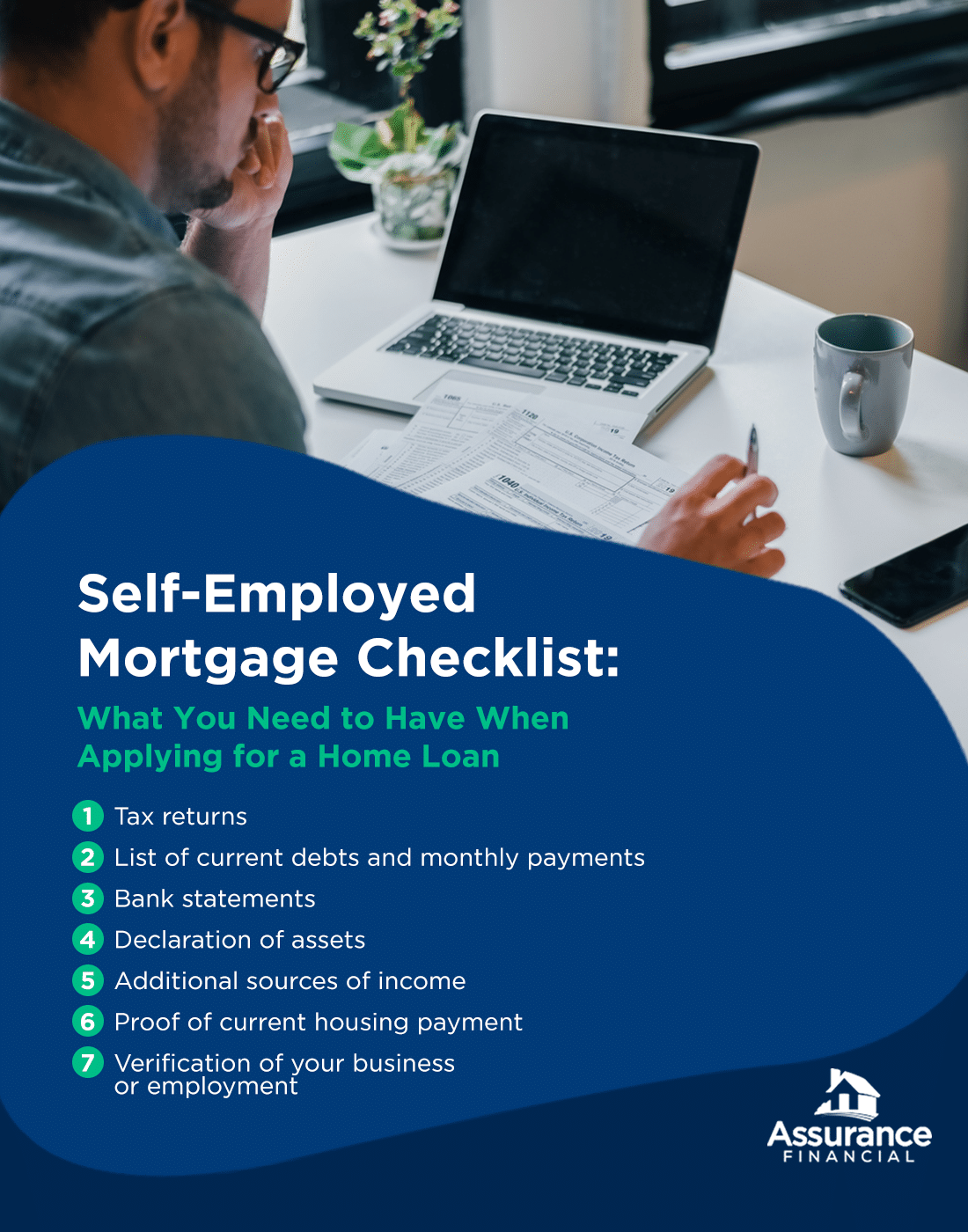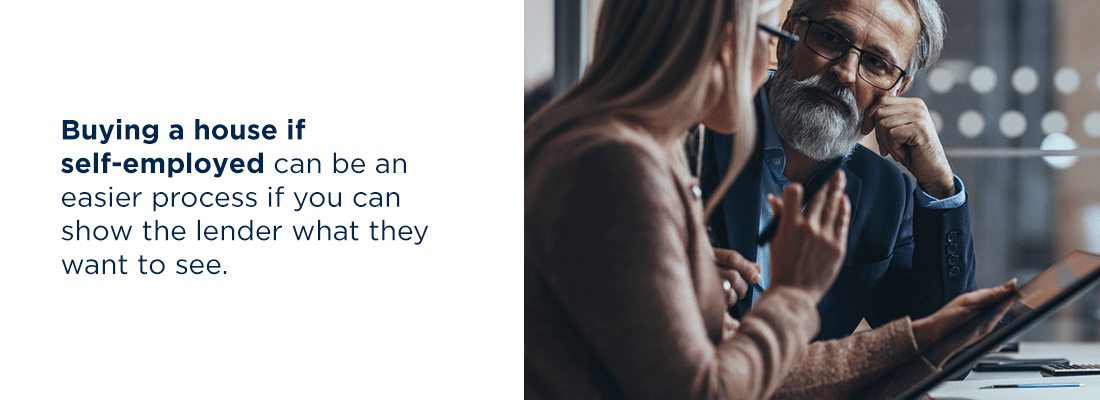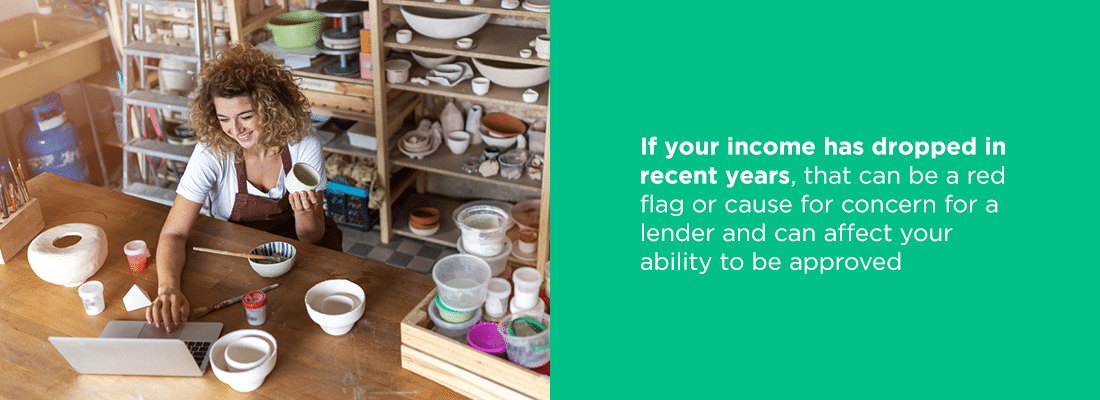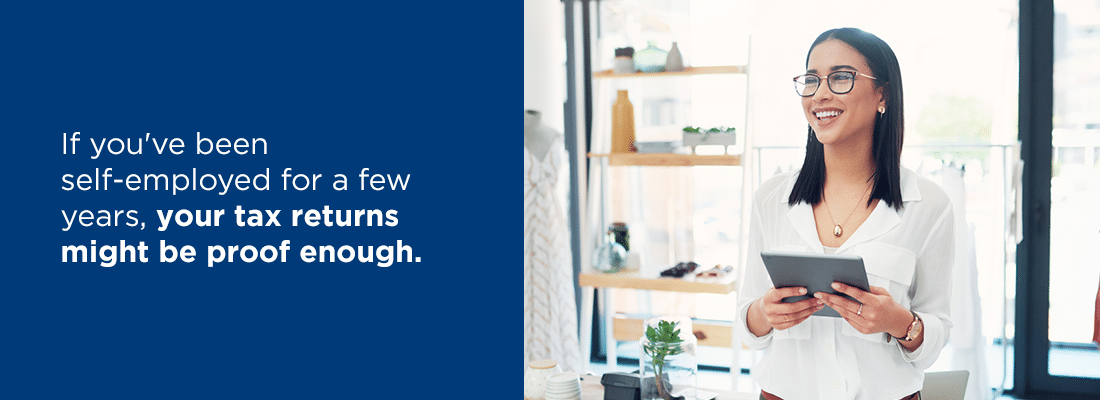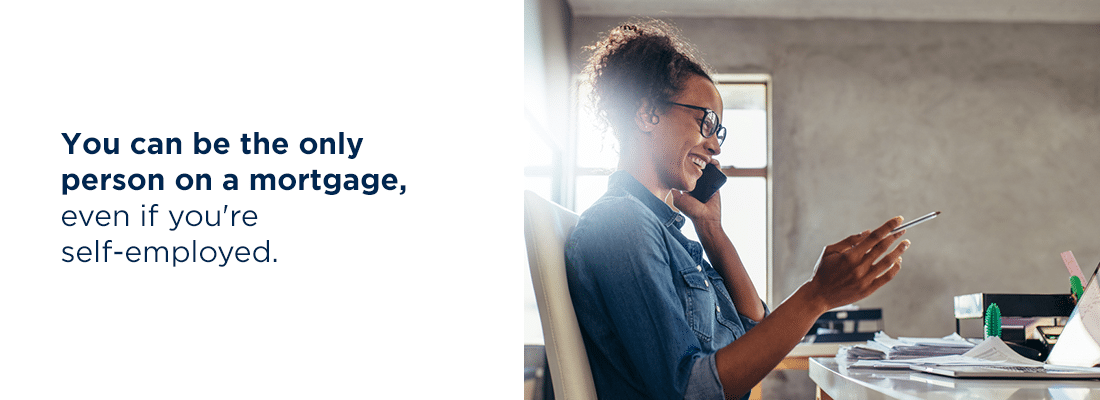Month: March 2020
For the majority of home buyers, getting a mortgage is part of the process of purchasing a new home. In 2018, 86% of buyers took out a mortgage to buy their home. If you’re considering becoming a homeowner, you might wonder if it’s difficult to get a mortgage now or if it is the best time to shop for a mortgage loan. The truth is that the right time to apply for a mortgage will be different for every buyer. Your credit history, how much you have saved up and your income and employment history are just a few things that can determine whether you’ll qualify for a home loan and what type of interest rate and terms you’ll be offered. Some factors, such as market rates and time of year, also play a role when it comes to the best time to get a mortgage, but are usually beyond your control.
If you’re considering becoming a homeowner and are wondering if the time is right, get to know the factors that affect your mortgage eligibility and what you can do to make yourself a better candidate.
When Your Credit Score Is Ready
Any type of loan brings with it some amount of risk, for you as the borrower and for lenders. One way lenders can protect themselves is by offering the best terms to people who have the highest credit scores. If a lender determines that a potential borrower’s credit history isn’t good enough, they may reject a person’s mortgage application entirely.
As a general rule, the higher your credit score, the better your chances of being approved for a mortgage. You’ll also get a lower mortgage rate if you have a very good or excellent score. When determining your eligibility, most lenders use your FICO score, which is pulled from each one of the three credit reporting agencies. FICO scores range from 300 to 850, and the closer you are to 850, the better your score. Scores above 800 are “excellent” or “exceptional” while scores between 740 and 799 are very good. Any score below 580 is considered poor. If your score is in that range, it can be challenging to get any type of loan, let alone a mortgage.
The great thing about credit scores is that they aren’t fixed in stone. Your score likely fluctuates from month to month based on your current debt situation and whether you have and use credit cards. If you’re interested in applying for a mortgage, but don’t have a very good or excellent score just yet, there are things you can do to bring that score up. If you have a lot of debt, you can focus on paying it down. If you’ve fallen behind on payments, getting current and committing to paying everything on time will help to raise your score.
It’s also worth noting that mortgage programs allow people who don’t have the best credit scores to qualify for a home loan. Loans backed by the Federal Housing Administration (FHA), Department of Agriculture (USDA) and the Department of Veterans Affairs (VA) are examples of government mortgage programs available to people who might have credit scores in the 500 or 600 range. The mortgage programs do have certain restrictions and might require you to pay for private mortgage insurance, but they can be a good choice if you’re ready to buy a house and your credit score isn’t where you’d like it to be.
When You Have a Stable Income
Although it’s impossible to say what’s going to happen in the future with any certainty, lenders typically want to see proof that you have had steady employment and a stable income. To do that, they will look at several years’ worth of your tax returns. Ideally, your tax returns will show a constant or steadily increasing income over the years. Along with checking your income, lenders will also usually review your employment history. They often want to see that you’ve been with the same employer for at least two years. If you are self-employed, lenders will want to see at least two years of self-employment income.
Having a history of stable income not only influences whether or not you’ll qualify for a mortgage. It also influences how much house you can afford to purchase. Typically, a lender will want your total mortgage payment — including taxes, homeowners insurance and private mortgage insurance — to be between 25 and 28% of your gross monthly income. If you earn $6,000 per month, a mortgage payment between $1,500 and $1,680 should be comfortable for you.
Another way to calculate how much house you can comfortably afford is to multiply your annual income by two or three. If you earn $6,000 per month, your annual income is $72,000. That means a house between $144,000 and $216,000 is within your affordable range.
If you’re recently started working at a new job or are just getting started in your career, you might find that you need to wait a few years before you apply for a mortgage, to give your income and employment time to stabilize.
When You’ve Saved Enough
How much money do you need to have set aside before you can apply for a mortgage? Conventional wisdom says that you should have at least enough to put 20% of the price of the house down. If you’re purchasing a $200,000 home, you’d need to have $40,000 to put down. If you have that amount or 20% of the price of the home saved up, great. But not having that much money available doesn’t necessarily mean you won’t be able to buy a house or get a home loan.
Some programs, like VA and USDA loans, don’t require a down payment. Others, such as FHA loans, let you put down as little as 3.5%. You can also take out a conventional, or non-government-backed mortgage with as little as 3% down.
Although you can buy a house and get a mortgage with a small down payment, you should answer some questions to determine if it’s the right choice for you. The smaller your down payment, the larger your monthly mortgage payment. Can you afford the bigger monthly payment? If you put down less than 20%, you’ll also be responsible for paying private mortgage insurance premiums. How long you need to pay the premiums depends on the type of loan you get. The amount of the premiums depends on the size of your down payment. Your premiums will be lower if you put down 10% compared to putting down 3 or 5%. Will you be able to afford the cost of the premiums?
In addition to the down payment, you’ll need to have enough cash to cover closing costs and to create a cushion in case anything in the home needs repair or replacement after you’ve purchased it. Often, it’s recommended to have between 1 and 3% of your home’s value set aside in cash to cover the cost of repairs and maintenance. The age and condition of your home also influence how much you should save up before purchasing it. You might want to have a larger reserve for an older home with fewer updates. If the home is newer or was more recently updated, you can often safely have a smaller home repair emergency fund.
Additional Factors to Consider Before Shopping for a Mortgage
While your credit score, income and savings are three of the biggest things that determine whether or not it’s the best time to close on a mortgage, a few other factors also come into play. One of those factors is the amount of other debt you currently have. For the most part, if you want to get a qualified mortgage, your total debt-to-income ratio needs to be less than 43%. Your debt-to-income ratio is a comparison of the amount you earn each month to what you pay towards loans and debts.
Let’s say you earn $6,000 a month. You have credit card debt with a monthly payment of $100 and student loan debt with a monthly payment of $400. So far, your debt to income ratio is a little more than 8%. You’re also interested in buying a house that would have a mortgage payment of $1,600 per month, including taxes and insurance. Added to the $500, your total debt climbs to $2,100 and your debt-to-income ratio becomes 35%.
If your credit card payments were $500 per month and your student loan payments were $800, it would be more of a stretch to get approved for a mortgage with a $1,600 monthly or to afford to borrow that much. With an income of $6,000, a mortgage payment of $1,600 and other debts totaling $1,300 per month, your debt-to-income ratio would be 48%.
Another thing to consider when trying to decide if it’s a good time to apply for a mortgage is the amount of tax you’ll need to pay for the property and how having a mortgage will affect your tax bill. If you itemize your deductions when you file your tax return, you can deduct what you pay in interest on your mortgage for loans under $750,000 that were taken out after 2017. Since the standard deduction is now $12,200 for single filers and $24,400 for joint married filers, itemizing to deduct your mortgage interest might not save you any money.
The property tax rate in your area and the value of your home will affect your monthly mortgage payment. When you’re shopping around for a home loan, it’s important to know what the tax rate is and how much of your monthly payment will go towards taxes. If you want to live in an area with high property taxes, you might find the value of the home you can afford is lower than if you were to consider buying in an area with lower taxes.
The Mortgage Business Cycle
As you get ready to apply for a mortgage, it can be helpful to pay attention to the time of the month. For many lenders, the beginning of the month is when they are trying to get the most applications, while the middle of the month is the time to gather all the supporting documents and to prepare loans for final approval. The end of the month is often the best time to close on a mortgage for lenders and borrowers.
If you reach out during the first week of the month, or on the first day of the month, a lender is likely to be less pressed for time and more available to see to your needs. That’s not to say that you should only try to get a mortgage at the start of the month. Lenders are available at all times. But if you want the most attention, it can be helpful to contact a lender earlier in the month rather than later.
Apply for a Mortgage When You’re Ready
There’s really no one “right” time to apply for a mortgage. Your friend might be ready to apply for a home loan when they have enough saved to put 10% down and they have a credit score of 760. You might not feel ready to make the jump into homeownership until you have at least 20% saved for a down payment and your credit score is at least 800. Your income also plays a big role in helping you determine when you’re ready. If your housing payment will be more than 25 to 28% of your monthly income, you might want to hold off on purchasing until your income is higher or you have more saved up, since a larger down payment would bring down your monthly payment.
If your credit is very good or excellent, you have a stable income and you have enough saved up, you might still decide to hold off on applying for a mortgage due to your current lifestyle. You might not be sure how long you’ll stay in an area, for example. Usually, it’s a good idea to wait to buy until you’re sure that you’ll be staying put for at least a few years. What you plan on doing with your life over the next few years might also influence whether or not you’re ready to buy a home and get a mortgage. Having a child or getting married are usually two life changes that cause people to seriously consider homeownership.
If there’s a big change in your life, later on, you can always make adjustments, such as selling your home and upgrading to a bigger property, as needed.
APPLY TODAYAssurance Financial Can Help You Decide When the Time Is Right to Get a Mortgage
At Assurance Financial, our goal is to help our customers achieve the American dream of homeownership. We want to help you find the right mortgage for you, at the right time for you – no matter what stage you are in your life. Our mortgage experts are licensed in 43 states and are happy to work with you to guide you towards a home loan customized to you. If you’re ready to get started, apply today.
Sources:
- https://www.nar.realtor/research-and-statistics/research-reports/highlights-from-the-profile-of-home-buyers-and-sellers#financing
- https://www.myfico.com/credit-education/credit-scores
- https://assurancemortgage.com/first-time-homebuyer-programs/
- https://www.bankrate.com/mortgages/how-your-credit-score-affects-your-mortgage-rate/
- https://www.nerdwallet.com/article/mortgages/credit-score-affects-mortgage-rate
- https://www.fdic.gov/consumers/consumer/moneysmart/podcast/documents/borrowing-money-how-much-mortgage-can-i-afford.pdf
- https://www.consumerfinance.gov/ask-cfpb/what-is-a-debt-to-income-ratio-why-is-the-43-debt-to-income-ratio-important-en-1791/
- https://www.thebalance.com/how-much-home-can-you-afford-mortgage-rule-of-thumb-1289846
- https://singlefamily.fanniemae.com/media/20786/display
- https://www.realtor.com/advice/finance/home-repair-emergency-fund/
- https://www.irs.gov/publications/p936
- https://www.businessinsider.com/the-best-time-to-buy-a-home-according-to-a-mortgage-analyst-2018-9
- https://www.creditsesame.com/blog/mortgage/right-time-to-apply-for-a-mortgage/
- https://www.creditkarma.com/tax/i/buying-a-house-tax-tips/
- https://assurancemortgage.com/apply/
- https://www.quickenloans.com/learn/best-time-to-buy-a-house
- https://loans.usnews.com/when-is-the-best-time-to-get-a-mortgage
- https://www.usa.gov/tax-benefits
In the U.S., nearly 10 million people are self-employed, and the number is expected to increase by nearly eight percent over the next few years. If you’re among the self-employed, you know things work slightly differently for you than for people who hold traditional W-2 jobs. Your income stream is different, and your tax situation is different. When it comes time to go through the mortgage process and buy a home, you might find things are different for a self-employed person, too.
There’s good news about buying a home with self-employment: It is possible. In fact, if you have good or excellent credit and can prove you have a steady stream of income, you might find your mortgage experience is similar to that of your traditionally-employed friends and family.
Best Mortgages for Self-Employed First-Time Buyers
Whether self-employed or not, multiple mortgage options are available to you. The type of mortgage that will best suit you depends on your credit, the amount you have saved for a down payment and where you’re hoping to purchase a home. Some mortgages are backed or guaranteed by the federal government, while others are not. If you’re self-employed and looking for a mortgage, consider these options:
1. Conventional Mortgage
The simplest way to describe a conventional mortgage is as a home loan that isn’t guaranteed by the government. When a lender issues a conventional mortgage, they are taking on more risk because the government isn’t there to pay back some or all of the loan balance if the borrower can’t.
Typically, conventional mortgages have tougher qualification requirements compared to other home loans. Borrowers typically need to have a very good credit score to qualify for a conventional loan. There’s also the issue of the down payment. Although people often think you need to put 20 percent down to get a conventional mortgage, you can put down less and still qualify.
If you put down any amount below 20 percent of the value of the home, you’ll have to pay private mortgage insurance, in addition to the principal and interest due each month. Once you’ve paid off at least 20 percent of the home’s value, you can ask the lender to remove the private mortgage insurance premium from your loan.
The term of a conventional mortgage can be up to 30 years. The longer the mortgage term, the more you’ll pay in interest over the life of the loan, but the lower your monthly payment will be. Conventional mortgages also offer the option of having a fixed interest rate, which stays the same for the life of the loan, or an adjustable rate, which fluctuates with the market.
2. FHA Loan
FHA loans are insured and guaranteed by the Federal Housing Administration (FHA). The FHA itself doesn’t make the loans. Instead, a mortgage lender or bank does. If a borrower defaults or isn’t able to pay back their mortgage, the FHA will step in. Since the FHA loan program offers extra protection to a lender, borrowers who might not have the best credit are often able to qualify for them.
FHA loans require a minimum down payment of 3.5 percent. If you have a higher credit score and can afford to make a bigger down payment — at least 10 percent — getting an FHA loan might not make sense for you, because of the fees and mortgage insurance requirements.
The loans require the borrower to pay mortgage insurance, in the form of a 1.75 percent fee at closing and a fee between 0.45 and 1.05 percent every year. Unlike a conventional mortgage, the annual mortgage insurance payment is often required for the life of the loan, even after a borrower has paid 20 percent of the value of the home. The only way to remove the mortgage insurance premium is to refinance to a conventional mortgage.
Like conventional loans, FHA loans are available in terms of up to 30 years. Interest rates can be fixed for the life of the mortgage or adjustable.
3. USDA Loan
If you’re self-employed and have always dreamed of living in the country or a relatively rural area, a USDA loan might be the mortgage that works for you. The USDA loan program provides mortgages with zero percent down on homes in designated areas. Two types of USDA loans are available: direct loans, which come right from the USDA, and guaranteed loans, which are made by a private lender. The guaranteed loan program is backed by the U.S. Department of Agriculture and guarantees up to 90 percent of the value of the loan.
Along with buying a home in an eligible area, you need to meet certain income requirements to qualify for a USDA loan. The mortgages are intended for people who have low to moderate incomes. The USDA provides an income eligibility calculator to use to see if your household falls below the maximum income threshold. Income maximums are based on the type of loan program. The maximum allowed income is lower for direct loans than it is for guaranteed loans.
It’s worth pointing out that although you can’t use a USDA loan to purchase a home in the middle of a major city or urban area, the “rural” requirements might not be as rural as you think. Many homes in suburban areas qualify for USDA loans.
4. VA Loan
A Veterans Affairs loan is a type of mortgage available to people who are either currently serving in the armed forces or who have in the past. How long you need to have served with the armed forces depends on when you were on active duty, usually anywhere from 90 days to 24 months. If you were married to someone who died while on active duty, you can also qualify for a VA loan.
Like USDA loans, VA loans allow you to buy a house without a down payment. Unlike FHA loans, there is no mortgage insurance premium required for VA loans. Interest rates on a VA loan also tend to be lower compared to other mortgages. Closing costs are also often lower, as well.
5. Bank Statement Loan
Unlike an FHA, VA or USDA loan, a bank statement loan isn’t a type of mortgage program. Instead, it’s a process of approving a person for a loan without requiring them to provide proof of income, such as a tax return. When issuing a bank statement loan, a lender looks at anywhere from one to two years worth of your bank statements to get a sense of your total incomings and outgoings.
A bank statement loan can be a viable option for a self-employed person who doesn’t have income tax returns or other verifiable proof of income. The trade-off is that the interest rate on the loan tends to be higher than for other options since the lender is taking on somewhat greater risk.
Self-Employed Mortgage Checklist
What You Need to Have When Applying for a Home Loan
Whether you go for a government-backed loan, a bank statement loan or a conventional mortgage, a lender is going to require a fair amount of documentation before approving you for a home loan. Some of the paperwork you will need to show a mortgage lender includes:
- Tax returns: You’ll need to submit business and personal tax returns if you have them. Your lender will look at your net business income to determine your eligibility. Depending on how long you have been self-employed, you might need to provide at least one or two years’ worth of returns.
- List of current debts and monthly payments: If you have any additional debts, you will have to let your lender know about them, including how much you pay toward your debt monthly. Having additional debt can affect the size of the mortgage you’re eligible for.
- Bank statements: If you decide to get a bank statement loan, you might need to provide up to 24 months’ worth of bank statements. Even if you verify your income using your tax returns, your lender will most likely still ask to see at one month’s worth of bank statements.
- Declaration of assets: Lenders also want to see proof that you have enough money for a down payment. You might need to submit a list of your assets, including money in savings account and investment accounts, when you apply for a mortgage.
- Additional sources of income: If you have other sources of income, such as alimony, Social Security or income from a job, your lender might want to see it, especially if it will affect your eligibility.
- Proof of current housing payment: You might need to give your lender canceled checks or other proof of payment for your current mortgage or rent.
- Verification of your business or employment: It’s not enough to say you’re self-employed. A lender will often want to see proof. The proof can be in the form of a business license, membership in a professional organization, letters from clients or a statement from your accountant.
In addition to documentation verifying your income, assets and debt, lenders might also ask that you fill out several forms, giving them permission to access certain information. For example, you might need to complete Form 4506-T, which gives the lender permission to access transcripts of your tax returns from previous years.
The exact documents required might vary from lender to lender. In some cases, there might be some flexibility from a lender. For example, if you don’t have one document, they might be willing to accept another in its place. What you need to provide might also vary based on your income and how long you’ve been self-employed. Usually, the higher your income and the longer your history of stable self-employment, the smoother the mortgage process will be.
What Lenders Like to See From Self-Employed Loan Applicants
Some self-employed mortgage candidates are more attractive to lenders than others. Buying a house if self-employed can be an easier process if you can show the lender what they want to see. A few things that will make your application more appealing and more likely to be approved include:
1. Good or Excellent Credit
The higher your credit score, the better, if you want to buy a house as a self-employed person. A good credit score is one that’s over 670, while an excellent score is one that’s over 800. Having a good to excellent credit score shows a lender that you have a history of making payments on time, of not taking on excessive amounts of debt and a decently long history of using credit.
If you aren’t sure what your credit is, it’s a good idea to request your score before you start the mortgage process. If it’s not good, you have time to raise it before you apply or begin looking for a house. Some things you can do to increase your score include paying on time, paying off high amounts of debt and avoiding opening new accounts.
Usually, lenders will check your personal credit before approving or denying your mortgage application. If your business has a credit rating, they will also look at that.
2. Stable Income
For the most part, your business or self-employment track record should be on the up-and-up. A lender not only wants to see proof of steady income over the years, but they also want to see some evidence that your income has grown over time. If your income has dropped in recent years, that can be a red flag or cause for concern for a lender and can affect your ability to be approved or can affect the size of the loan you qualify for.
If you had one or two bad years but an equal number or more good ones, you probably don’t have too much to worry about when it comes to getting approved for a mortgage. Your lender is likely looking at the big picture, not at micro trends. If one bad year is followed up by several years of increasing or steady income, a lender will most likely still approve your application.
3. Money in the Bank
In addition to the money you are using for a down payment, a lender might want to see that you have a reserve of cash to use in case times are tight. Having a sizeable emergency fund, such as several months to a year’s worth of mortgage payments set aside can make you more attractive as a borrower.
Another reason why it’s a good idea to have money in the bank is that you might need it to cover the cost of repairs or other surprise expenses as a homeowner. Ideally, you’ll be able to avoid taking on additional debt after you buy your house to keep it in good condition.
4. Steady Work
Someone who works a full-time, salaried or hourly wage job usually gets up and goes to work for 40-hours a week. Self-employment work can be a little more difficult to quantify, but generally speaking, a lender wants to see that you have steady work available to you. There are a few ways you can show a lender that you have regular work. If you’ve been self-employed for a few years, your tax returns might be proof enough.
If you’re relatively new to self-employment, you might show a lender any contracts you have with clients or letters from clients that state that you are doing work for them. The contracts or letters could describe the nature of the work, including how long it might last.
5. Ample Down Payment
You don’t need to put down 20 percent to get a mortgage and a home as a self-employed person. But being able to make a larger down payment can improve your chances of approval. Generally speaking, people who can pay 20 percent upfront are seen as a lower risk compared to people who make a five or 10 percent down payment.
A bigger down payment shows a lender that you’ve been capable of saving up a considerable amount of money. It also sends the message that you’re invested in your new home and might be less likely to default, since you’re putting so much into it from the beginning.
6. Minimal Additional Debt
Ideally, you won’t be going into the process of applying for a mortgage as a self-employed person with a lot of other debt. Your debt-to-income ratio, or the amount of debt you have each month compared to your monthly income, should be on the low side. If you’re applying for a mortgage, 43 percent is usually the highest allowable debt-to-income ratio. As a self-employed person with a variable income, you might want to aim for an even lower percentage.
If you have a lot of debt, whether it’s credit card debt, student loans or a car loan, you might want to focus on paying it down before you apply for a loan, especially if you are self-employed.
APPLY TODAYCommon Misconceptions About Getting a Mortgage While Self-Employed
There are some misconceptions and myths out there about the process of getting a home loan as a self-employed person. Small business owners might need to provide a lender with more or a different set of paperwork compared to employees, but overall, the process of getting approved is very similar for each type of person. Here are a few common sources of confusion when it comes to mortgages for the self-employed:
1. Lenders Look at Your Gross Revenue
For many self-employed people, it’s not quite clear what income a lender will use when deciding the size of loan someone is eligible for or if they’re even eligible at all. Lenders don’t look at your gross income or revenue — the amount you bring in before expenses and other deductions. They also don’t use your adjusted gross income on your tax return. Instead, they look at your net business income — the amount you bring in after you subtract relevant business expenses. That can mean the size of the loan you qualify for is smaller, but also that you’ll be more comfortable paying it back.
2. You Always Need a Co-Signer If You’re Self-Employed
You can be the only person on a mortgage, even if you’re self-employed. As long as you have good or excellent credit and a verifiable source of income, you should be good to go getting your own mortgage. There might be times when having a co-signer can be helpful, such as if you don’t have adequate proof of income, but they aren’t a requirement.
3. You’ll Get Stuck With a Higher Interest Rate
The interest rate a self-employed person pays on their mortgage can be the same or even lower than the rate a traditionally-employed person pays. The factors that influence interest rates include your credit score, how much you put down and the length of the mortgage. If you have an excellent credit score, put down 20 percent and get a 15-year mortgage, you might end up with a rate that’s lower than an employed person with a lower credit score gets by putting down 10 percent on a 30-year mortgage.
Get Started on Your Self-Employed Mortgage Application Today
Ready to see what type of mortgage is right for you or if you qualify for a mortgage as a self-employed person? Assurance Financial can help. We’re a team of loan advisors who can help you find the right mortgage and walk you through the process from beginning to end, step by step.
You can apply online in 15 minutes with us 24 hours a day, seven days a week.
Should Baton Rouge homeowners refinance as coronavirus fears push down rates?
By Caitie Burkes, The Greater Baton Rouge Business Report | Tuesday, March 3, 2020
Stock market fears about the coronavirus have helped push mortgage rates to near all-time lows, which local lenders say gives Baton Rouge homeowners who refinance an opportunity to lower their monthly bills.
The yield on the 10-year U.S. Treasury is nearing 1%, and mortgage rates have fallen about a full percentage point over the past year. Moreover, the Federal Reserve cut its benchmark rate this morning to a range between 1% and 1.25%.
“If there was ever a time somebody was looking to do home improvements, take equity out of their home, purchase a home or reduce their rate, get off the fence and do it now,” says Kenny Hodges, president and CEO of Assurance Financial.
Rates on a 30-year fixed mortgage have dropped from about 4.5% to around 3.5% over the past year, which effectively makes the same-priced house from a year ago more than 10% cheaper today in monthly mortgage payments.
Hodges says Assurance Financial had its largest-ever lock month in the company’s 19-year history in February, with Monday marking the company’s single-largest lock day ever, breaking its previous one-day record by more than 25%.
“If there is a silver lining to the coronavirus, it’s that it’s created an ideal time for people to either refinance their mortgages for great rates or purchase a new home,” he says.
Furthermore, as purchasing season begins, the sharp drop could also give prospective homebuyers a chance to afford the house they’ve been eyeing.
Tee Brown, president and CEO of GMFS Mortgage, says refinancing makes sense for local individuals planning to stay in their homes for a long time, noting they now have the chance to save several hundred dollars a month by either going from a 30-year mortgage to a 15-year mortgage, or by refinancing their entire 30-year mortgage.
“Evaluate where the interest rates are and what you can qualify for, and take advantage of these historically low rates if it economically makes sense,” Brown says. “Get a free quote and see what you might be able to accomplish.”
GMFS has seen a 100% increase in locks over the past two weeks, says Brown, rising from about $300 million in locked rates a given month to $600 million amid the coronavirus outbreak.
If the 10-year Treasury declines even further, mortgage rates could drop more, too, though they don’t always follow the government benchmark exactly.

